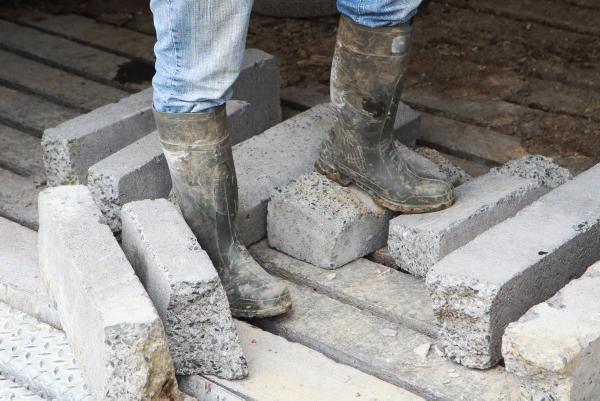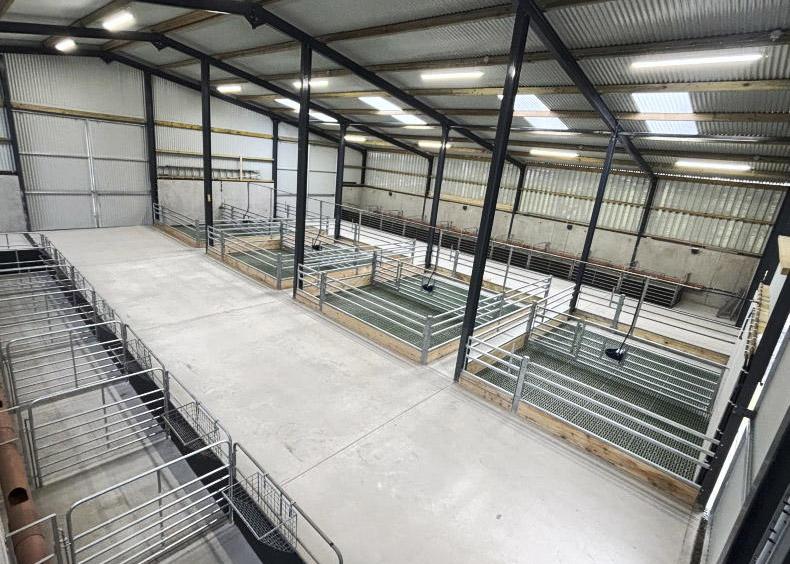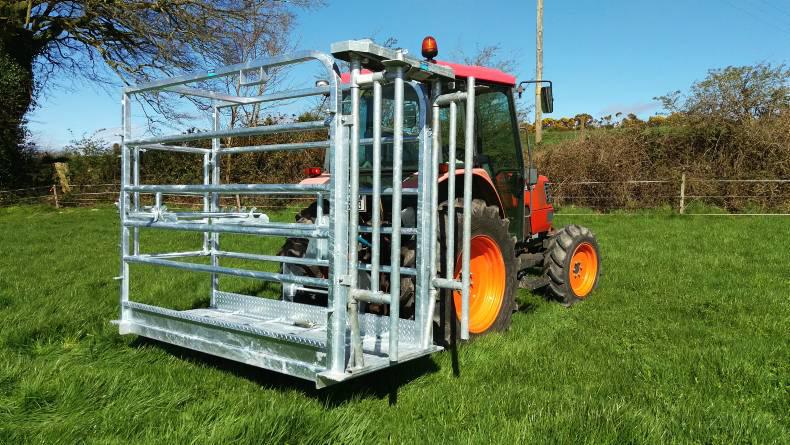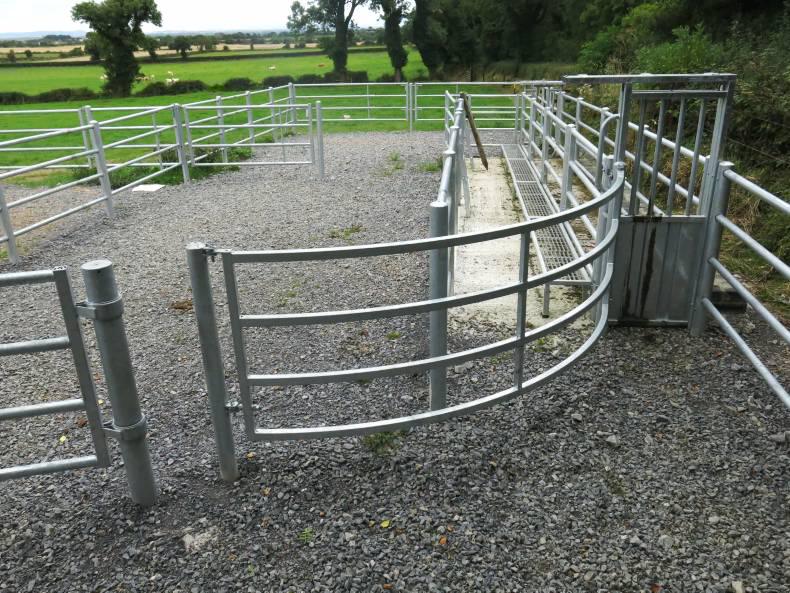If the scheme is oversubscribed, then a priority marking system will apply. Your ranking partly depends on your age and location. A speedy, error-free application will get you a few extra points without pain.
Farmers applying to TAMS I now for the first time get priority points, and this is designed to maximise the number of farmers benefiting from the scheme. Lowering your proposed cost will gain you significant ranking points, but will also lower your grant aid.
That clause will encourage farmers to shop around for their safety equipment and help spread the total €12.2m funding among more farmers. The best advice on this is to obtain the best quote you can and use this as your proposed cost.
Age: Applicants aged 40 will receive five ranking marks. One additional mark will be given for each year under 40 that an applicant is. For each year over 40 an applicant will lose 0.1 marks. A young farmer must hold a Department identifier at the time of application in order to be granted this priority.TAMS I: Priority shall be given to applicants with no prior TAMS I approval. Fifty marks will be awarded to an applicant not given approval under TAMS I.Cost of proposal: Applicants will be given preference where the proposed costs are lower than the Department’s reference costs or the scheme’s investment ceiling. Five marks will be given for every 1% that the total proposed cost is below the lower total reference cost or scheme ceiling. A maximum of 100 marks will be given where the proposed cost is 20% below the reference cost or scheme ceiling. Zero marks will be given if proposed cost is at or above reference cost or scheme ceiling.Correct application: Fifteen marks will be given if the applicant submits a complete accurate application form, which does not require further queries from the Department.Date of application: Fifteen marks will be available for applications submitted on or before 31 October 2014. Loss of 0.2 marks per calendar day for every day the application is received after 31 October 2014.LFA: Ten marks where the holding is in a Less Favoured Area (LFA).Applying for payment
After receiving approval and undertaking the work/investment, an applicant will then apply for payment using form FSS20. All relevant receipts and invoices must be submitted with this form.
All receipts must be original, must be on headed paper and must at least include the name, address and VAT number of the supplier/contractor (if registered). In addition, the receipt must indicate:
The name and address of the applicant.The invoice number and date, where applicable.The details of purchase in an itemised form specifically referencing serial number, where applicable.Actual cost of each approved item excluding VAT.The total VAT paid.The amount of discount, if any.In the case of receipts comprising of both goods and service (supply and fit), there must be a breakdown between the categories.The receipts/invoices submitted must only include items relevant to the work/investment that received approval. Items invoiced, delivered or purchased, or payments made before the date of approval are not eligible for grant aid.
If it is indicated that work commenced prior to the granting of written approval, grant aid will not be paid.
Applying for payment on
own labour/machinery
Direct constructional work by the applicant, or person working on the applicant’s behalf, qualifies for a payment of €12.40/hour.
Where some or all of the works are carried out by the applicant or a family member, the hours worked and the date(s) on which they were worked must be set out on form FSS20 when claiming grant aid, and be broken down per approved investment item. The Department’s reference costings include the cost of labour, so own labour cost will not be added to these reference costs. The Department’s reference costing also cover rates for different types of machinery. For example, the payment for use of a tractor is €18.90/hour, for a dump trailer it’s €4.50/hour, for a wheeled digger it’s €19.20/hour, for a mini digger it’s €10.80/hour and for a large excavator it’s €23.80/hour. Where own machinery is used, the hours worked and the date(s) on which they were worked must also be shown on form FSS20, together with the hourly rate charged.
If the scheme is oversubscribed, then a priority marking system will apply. Your ranking partly depends on your age and location. A speedy, error-free application will get you a few extra points without pain.
Farmers applying to TAMS I now for the first time get priority points, and this is designed to maximise the number of farmers benefiting from the scheme. Lowering your proposed cost will gain you significant ranking points, but will also lower your grant aid.
That clause will encourage farmers to shop around for their safety equipment and help spread the total €12.2m funding among more farmers. The best advice on this is to obtain the best quote you can and use this as your proposed cost.
Age: Applicants aged 40 will receive five ranking marks. One additional mark will be given for each year under 40 that an applicant is. For each year over 40 an applicant will lose 0.1 marks. A young farmer must hold a Department identifier at the time of application in order to be granted this priority.TAMS I: Priority shall be given to applicants with no prior TAMS I approval. Fifty marks will be awarded to an applicant not given approval under TAMS I.Cost of proposal: Applicants will be given preference where the proposed costs are lower than the Department’s reference costs or the scheme’s investment ceiling. Five marks will be given for every 1% that the total proposed cost is below the lower total reference cost or scheme ceiling. A maximum of 100 marks will be given where the proposed cost is 20% below the reference cost or scheme ceiling. Zero marks will be given if proposed cost is at or above reference cost or scheme ceiling.Correct application: Fifteen marks will be given if the applicant submits a complete accurate application form, which does not require further queries from the Department.Date of application: Fifteen marks will be available for applications submitted on or before 31 October 2014. Loss of 0.2 marks per calendar day for every day the application is received after 31 October 2014.LFA: Ten marks where the holding is in a Less Favoured Area (LFA).Applying for payment
After receiving approval and undertaking the work/investment, an applicant will then apply for payment using form FSS20. All relevant receipts and invoices must be submitted with this form.
All receipts must be original, must be on headed paper and must at least include the name, address and VAT number of the supplier/contractor (if registered). In addition, the receipt must indicate:
The name and address of the applicant.The invoice number and date, where applicable.The details of purchase in an itemised form specifically referencing serial number, where applicable.Actual cost of each approved item excluding VAT.The total VAT paid.The amount of discount, if any.In the case of receipts comprising of both goods and service (supply and fit), there must be a breakdown between the categories.The receipts/invoices submitted must only include items relevant to the work/investment that received approval. Items invoiced, delivered or purchased, or payments made before the date of approval are not eligible for grant aid.
If it is indicated that work commenced prior to the granting of written approval, grant aid will not be paid.
Applying for payment on
own labour/machinery
Direct constructional work by the applicant, or person working on the applicant’s behalf, qualifies for a payment of €12.40/hour.
Where some or all of the works are carried out by the applicant or a family member, the hours worked and the date(s) on which they were worked must be set out on form FSS20 when claiming grant aid, and be broken down per approved investment item. The Department’s reference costings include the cost of labour, so own labour cost will not be added to these reference costs. The Department’s reference costing also cover rates for different types of machinery. For example, the payment for use of a tractor is €18.90/hour, for a dump trailer it’s €4.50/hour, for a wheeled digger it’s €19.20/hour, for a mini digger it’s €10.80/hour and for a large excavator it’s €23.80/hour. Where own machinery is used, the hours worked and the date(s) on which they were worked must also be shown on form FSS20, together with the hourly rate charged.










SHARING OPTIONS